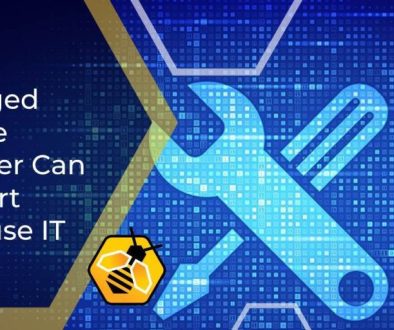Five Frequently Asked Questions About IT Business Support
IT business support is naturally a subject that generates a lot of questions. Whether you consider yourself to be reasonably clued up, or you find yourself stumped over changing a password, there’s bound to be some uncertainties in a fast-evolving field. IT can also be bound up in myths and misconceptions that only serve to confuse matters further.
Here are some of the answers to the most frequently asked questions about IT business support.
What does IT business support involve?
IT business support is an external service that supports businesses and organisations by managing their digital infrastructure and resolving technical issues. It may involve additional services such as cybersecurity and telecoms services. The support may be offered remotely, on-site, via a helpdesk, or through a combination of these methods.
What are the advantages of a managed service provider over an in-house team?
Small to medium businesses who manage their IT in-house may find it more difficult to keep up with specialist or large-scale projects, and may benefit from extra support from a managed service provider (MSP), either for specific rollouts or on an ongoing basis.
This will ensure that the IT infrastructure is monitored with the latest and best practices 24/7, and any issues are dealt with promptly, and preventative measures are put in place. This proactive approach reduces the likelihood of problems escalating into bigger issues that could potentially lead to IT downtime and disrupt business operations.
Is cloud computing less secure than using remote servers?
Small to medium businesses are often wary of cloud-based services such as those provided by Google or Microsoft, but in fact these are very safe and secure. This is because these huge corporations deploy the most cutting-edge encryption and cybersecurity technologies that generally cannot be matched by smaller enterprises.
In this era when many employees work remotely, cloud computing is often the most secure and efficient way to operate your IT infrastructure. It can lead to more streamlined workflows that are easier to manage and more cost effective.
Migrating your entire operations to the cloud can be a complex and daunting task, even if you do have your own in-house IT team. Therefore, many businesses of all sizes will work with an MSP to oversee the transformation process. This will ensure that everything runs smoothly and securely.
The MSP will be able to make suggestions and recommendations to ensure that you are using the most appropriate technologies and software for your business. They can help with email migration, enabling you to collaborate with your team more efficiently. They can also host your website and applications in the cloud and virtualise your infrastructure.
How do you choose an IT support provider?
There are hundreds of MSPs to choose from, so knowing which one might be right for you can be a difficult task. First of all, decide if you want to have only remote support or on-site support, as if you want the engineers to visit your premises, then it makes sense to narrow your search down to your local geographical area.
Next, decide what issues you want to have support with, whether it’s security, cloud migration, telecommunications, or general support and maintenance. If you have frequent IT failures and downtime, it may be a good idea to appoint an MSP to carry out an initial review of your infrastructure and then work with them to establish the best course of action.
Check if the MSP prefers to work with small to medium sized businesses or larger organisations, and if they specialise in the types of licensing and products that you have, such as Microsoft or iOS.
If the MSP is promising to offer expertise in every service and speciality across all business types and sizes, then this is not necessarily a good thing. Their knowledge may be too general, or they may be deliberately disguising weaker areas of the service. It may be better to focus on those MSPs who most closely match your needs and business model.
What should you do if you suspect a cyberattack?
If you suspect that your computer is infected with malware, it’s important to disconnect from the internet as soon as possible to prevent malware spreading to other devices. The computer should then be run with anti-virus scans, data backup and system updates. If in doubt, contact an IT professional for more information and advice.




